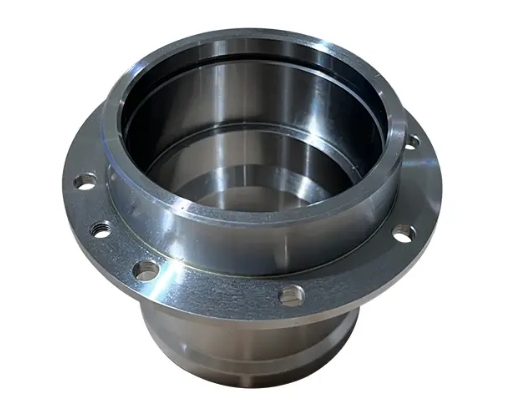In the rapidly changing manufacturing sector, automation and precision manufacturing have become the core driving force behind the development of the industry. CNC machining technology is at the forefront of this change. It greatly improves production efficiency and product quality by precisely controlling the movement and operation of machine tools. CNC machining of automation parts not only improves the automation level of the production line, but also ensures the consistency and reliability of the product. This article discusses in detail the necessity of CNC machining automation parts, the types of parts suitable for CNC machining, the appropriate material selection, and the importance of surface treatment.
Content:
Part 1. Why need CNC machining automated parts
Part 2. Which automated parts are suitable for CNC machining
Part 3. Which materials are suitable for automation parts
Part 4. What surface treatments are suitable for automation parts
1. Why do we need CNC machining automated parts?
Improve production efficiency
CNC machining significantly speeds up the production process by minimizing human intervention. Since CNC machines can run continuously without stopping, they have higher productivity than traditional manually operated machines. In addition, CNC machines enable unattended automatic production, greatly reducing production delays caused by human factors.

Precision and Repeatability
CNC machining is valued for its high precision and repeatability. CNC machines perform operations precisely according to preset programs, ensuring that each component meets strict specifications, which is extremely critical for producing precision parts.
Flexibility and adaptability
CNC machining can be easily adjusted to accommodate design changes, providing great production flexibility. Simply changing the CNC program allows the CNC machine to switch to different production tasks, making it suitable for customized production and rapid prototyping.
Cost-Benefit Analysis
Although the initial investment in CNC machines is relatively high, in the long run, they can save money by reducing waste, improving production efficiency and reducing labor costs. Especially in large-scale production, CNC machines can produce high-quality products in a shorter time, thereby effectively reducing the cost per piece.
2. Which automated parts are suitable for CNC machining
Parts with complex geometries
CNC machining is very suitable for manufacturing parts with complex designs, which are often difficult to achieve through traditional manual machining methods. For example, turbine blades in the aviation industry and engine parts in the automotive industry, these parts usually require high precision and high performance, and CNC machining can ensure their precise manufacturing.
Small to medium-volume parts
For small or medium-volume production needs, CNC machining provides a cost-effective solution. It allows parts to be produced quickly without sacrificing quality while maintaining flexibility in the production process.
Precision Engineering Parts
In industries that require extremely high precision, such as aerospace, medical devices, and precision instruments, CNC machining plays a key role. It ensures that parts meet strict technical and safety standards and is critical to the performance and stability of the entire system.
3. Which materials are suitable for automation parts?
The finishing of box parts is a process that requires extremely high precision, which is directly related to the assembly quality and performance of the entire mechanical system. When finishing the box parts, special attention needs to be paid to the following issues:
Metal materials
Metals such as aluminum, steel, and copper are the most commonly used materials in CNC processing. Aluminum is widely used in aviation and automobile manufacturing due to its light weight and easy processing characteristics; steel is widely used in engineering machinery and structural components due to its high strength and durability; copper is often used in the electronics industry due to its excellent electrical and thermal conductivity.
Plastics and Composites
As technology advances, plastics and composites are becoming more common in CNC machining. These materials are generally lighter and less expensive, making them ideal for making complex consumer electronics accessories and sports equipment.
Special materials
Special materials such as ceramics and titanium alloys can also be manufactured by CNC machining, although they are more difficult to machine. These materials are often used in special environments or applications that require extremely high wear resistance, such as biomedical implants and components in high-temperature environments.
4. What surface treatments are suitable for automation parts?
Surface coating
In order to improve the performance and durability of the parts, many automation parts need surface coating treatment. For example, anti-corrosion coatings can protect metal parts from oxidation, while hard coatings can improve the wear resistance of parts.
Heat treatment
Heat treatment is a process that optimizes the properties of a material by changing its microstructure. It can increase the hardness, strength or toughness of a material, thereby extending the service life of a component.
Polishing and grinding
These surface treatment techniques are used to improve the surface quality and aesthetics of a component. By removing minor defects and irregularities, polishing and grinding can produce a smooth surface, reduce friction, and enhance the overall appearance.
5. Why choose GPM as the best partner for the production of automated parts
GPM was chosen as the best partner for the production of automated parts based on its strong strength and outstanding performance in the field of precision machining and integrated services for high-end intelligent equipment. GPM has a multinational technical management team with an average of 20 years of experience and a high-end imported hardware equipment group, as well as a rigorous quality management system, which ensures the high quality of its products and the continued trust of its customers. GPM's products cover multiple fields such as medical, semiconductors, robotics, optics, and new energy, and continue to provide high-quality services to mid-to-high-end markets and industry leaders. This cross-industry experience and broad market coverage enable it to better understand and meet the needs of customers in different industries.
Post time: Jun-05-2024
